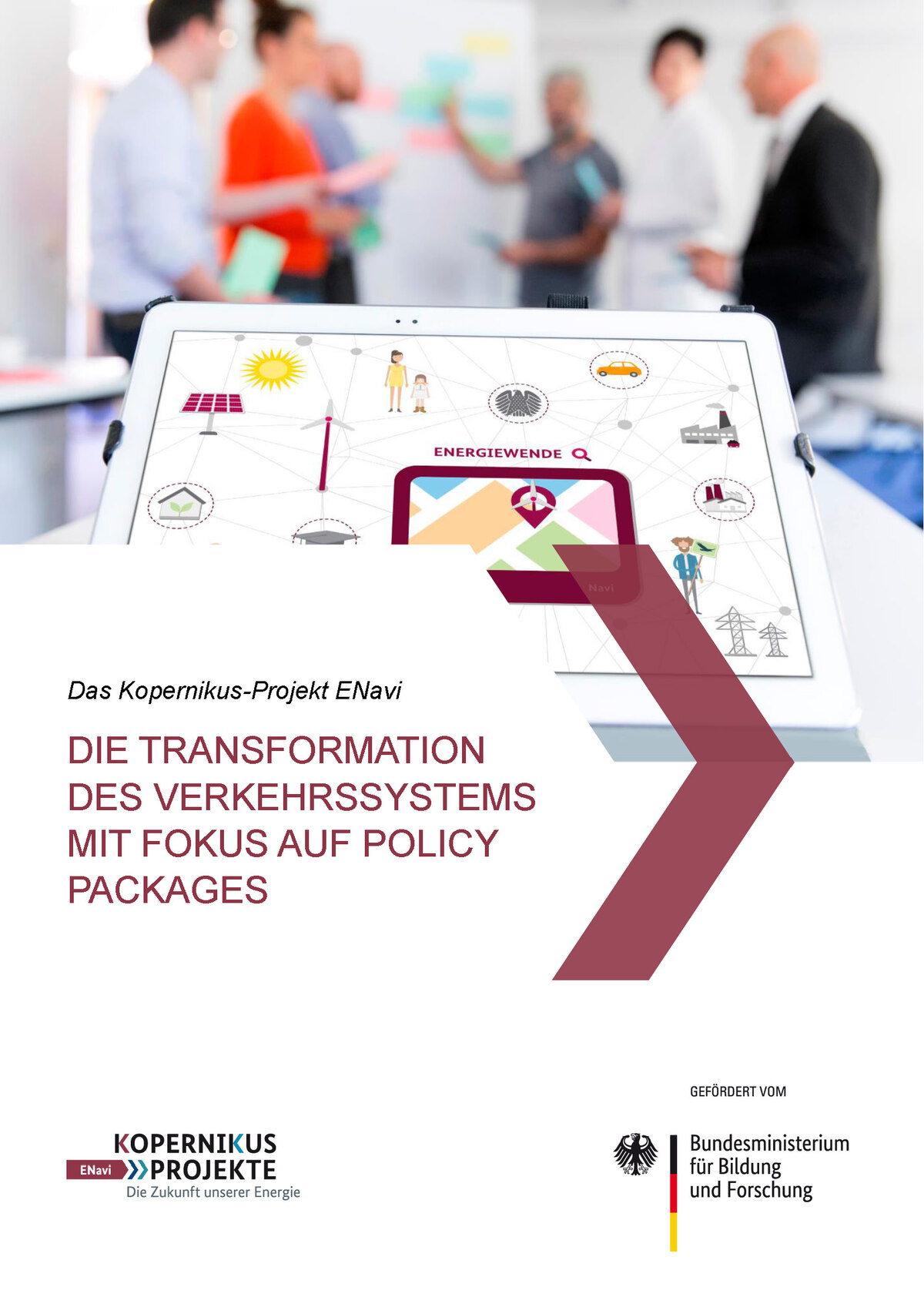Publication on the transformation of the transport system
Contrary to all political declarations of intent, it has not yet been possible to reduce greenhouse gas emissions in the transport sector in Germany below the 1990 level. With its “Climate Action Plan 2050,” the German government aims to achieve a reduction of about 40% by 2030 compared to 1990 – an immense challenge to be met within a few years only.
The ENavi Kopernikus project aims to provide important impetus for the development of a successful strategy to decarbonize the transport sector – even beyond the year 2030. Unlike previous methods, the researchers use an approach that does not consider ecological aspects, acceptance issues, or political feasibility and international implications downstream but on an equal footing with technical and economic analyses.
Central transformation paths
At the heart of the present final report is an impact assessment of two transformation paths with great potential for the transition of the transport system: The “Multi- and Intermodality” path is based on a change in the so-called “modal split” (i.e., the distribution of traffic among different modes of transport) away from motorized individual transport (MIT) toward car sharing, public transport, or cycling. The “Alternative Drives” path, on the other hand, relies on making the remaining MIT more climate-friendly through highly efficient drive technologies.
Policy packages and recommendations for action
From both transformation paths, the researchers derive policy packages with individual sets of measures, such as the promotion of public transport and integrated land management (“Multi- and Intermodality”) or the introduction of CO2 fleet limits and higher carbon pricing (“Alternative Drives”). Based on an impact assessment and the results of scientific and discursive assessment procedures, the authors finally provide a series of recommendations for actors involved in the transformation of the transport system. (05.12.2019)
Bibliographic data:
Scheer, Dirk [ed]; Arnold, Annika; Bangert, Armin; Dreyer, Marion; Nabitz, Lisa; Scheer, Dirk; Schmidt, Maike
Die Transformation des Verkehrssystems mit Fokus auf Policy Packages. Karlsruhe: KIT 2019, 38 S., DOI: 10.5445/IR/1000100204.
PDF-Download


